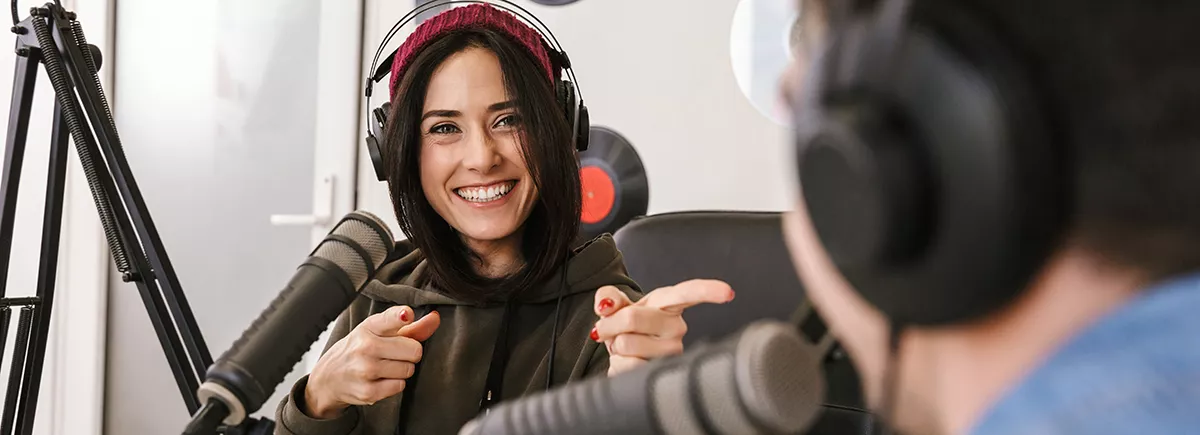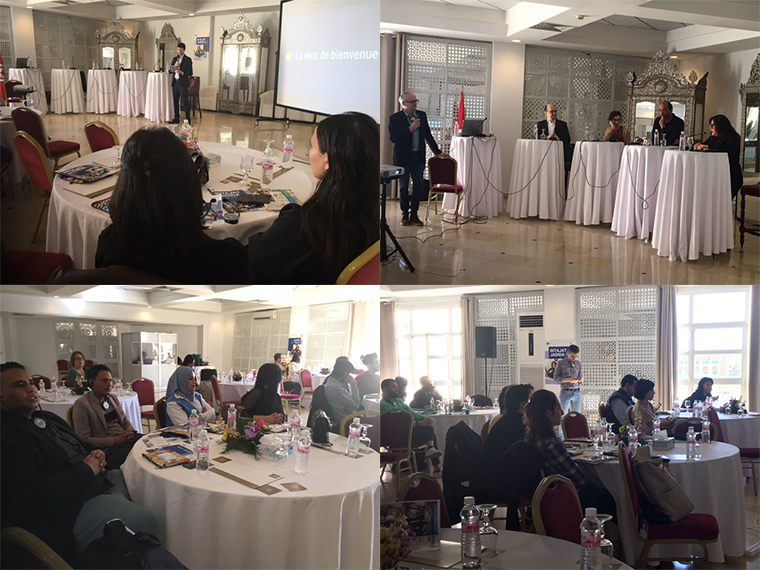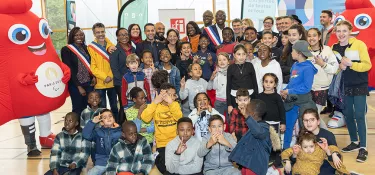
Intajat Jadida uncovers 21 new editorial gems
Related project
Intajat JadidaIntajat Jadida draws to a close. The closing workshop for this two-year CFI pilot project brought together content creators from Tunisia, Algeria, Morocco and Libya on 5 and 6 March.
Report from near Tunis by Emmanuel de Solère Stintzy.
Touareg women from southern Libya perform in traditional dress. An Algerian (spoof) rapper humorously describes his ChatGPT-based “creation” process. Two young Tunisians discuss a traditional practice laden with prejudice. Moroccan women share intimate secrets in the toilets. Applause, laughs, respectful silences… The atmosphere for the closure of the Intajat Jadida project is one of kindness.
The 21 content creators from the two groups enthusiastically explore some of the pilot videos created during their support period. Promising editorial gems that fulfil in every respect the aim of the project, which has been running since June 2022 in Algeria, Morocco, Tunisia and Libya, boosting the creativity of the beneficiaries to help them create increasingly cultural and educational, yet entertaining audio-visual productions.
Also present at the closing workshop in Tunisia were their expert coaches who congratulated them on having found such good ideas.
“In just a few months, they have all been successful in creating a well-structured audio-visual production”, says Claire Leproust, founder of FabLab Channel. “We helped them to refine their editorial angle and worked with them on their writing”, adds Malek Khadhraoui, from the Al Khatt association and founder of Tunisian media outlet Inkyfada.
“Those who listened most intently when told about the impossible aspects of their initial plan and then dug even deeper are those who have had the most interesting results”, says Philippe Couve, founder of Samsa Africa, in summary.
Community = pillar
Digging deeper to unearth other cultural gems is the speciality of Tunisian participant Aymen Goubaa and his project “Musiques enfouies” [buried music], winner of the best pilot for round 2: “I wanted to take the public with me into the field to showcase young artists from my region in southern Tunisia”. Taking to the mic, his Algerian fellow project participant recounts his own editorial adventure: “My idea was to create an educational podcast about drug consumption among students, a taboo subject for us”.
For everyone, after the success of their projects, the challenge now is to build loyalty in their audience. “With your community, you can find your independence. Diversify your income, because YouTube is a content thief! And don’t hesitate to turn down money and to let your community know. This will open up other markets”, advises Marc de Boni, co-founder of the YouTube channel "Et tout le monde s'en fout" [And nobody cares].
Younes Lazrak, CEO of Moroccan media outlet, Jawjab, shows the participants a short video on menstrual poverty produced with financial support from a brand “that had no editorial input”. It really left an impression, especially on Libyan Aladdin Elsgier (see profile here), who has already uploaded four episodes to his channel and racked up 300,000 views on social media for his podcast on e-commerce (buying and selling of goods and services over the Internet): “I am building a reputation that is bringing new partners to me. I organise monthly events bringing together different entrepreneurs. I offer freebies to media outlets and receive promotion for my podcast in return”.

Looking to future regional co-productions
One by one, the participants come forward at the end of the workshop to submit small pieces of paper with future ideas, in particular for support for future regional co-productions on issues common to the Maghreb region, such as culture or young people. There may be something to inspire CFI to support others looking for editorial gems in other parts of Africa as part of a future, even more customisable round of Intajat Jadida with different technical and editorial support based on starting levels.
As the designer and manager of the pilot project, Sylvie Orio invites the participants to keep going now that they have hit the right note with their innovative productions:


